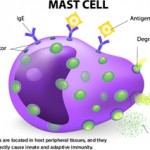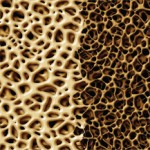Since 2005, the ACR’s Committee on Research has been responsible for advancing the research goals of the organization and providing leadership in research and research training in rheumatology via the ACR’s Research Agenda. The ACR Research Agenda is designed to address critical areas of research in rheumatic diseases, including the need for new technology, new…

2015 ACR/ARHP Annual Meeting: Macrophage Polarization and Its Role in Inflammatory Disease
SAN FRANCISCO—To unravel how out-of-control inflammation begins in rheumatoid arthritis and other diseases, one target for immunologists is the macrophage. Researchers discussed macrophage activation and other key drivers of inflammation at the 2015 ACR/ARHP Annual Meeting on Nov. 7. How macrophages behave when recognizing damage-associated molecular pathways (DAMPs) tells us more about why some inflammation doesn’t…

2015 ACR/ARHP Annual Meeting: Cellular Triggers in Inflammatory Disease
SAN FRANCISCO—What factors help determine whether or not inflammation resolves, leading to healing, or becomes chronic, leading to disease and tissue destruction? A number of important cells, including toll-like receptors, mast cells, anti-citrullinated protein antibodies, complement and interferon, all play their own role in this process. By understanding how they act in innate and adaptive…

2015 ACR/ARHP Annual Meeting: Genetically Complex Auto-Inflammatory Diseases
SAN FRANCISCO—Early in his career, Daniel Kastner, MD, PhD, scientific director at the National Human Genome Research Institute, saw a 24-year-old patient with a lifelong history of recurrent fever and severe episodes of arthritis. A colleague told him it was most likely familial Mediterranean fever (FMF). There was little then known about its mechanisms, and…

2015 ACR/ARHP Annual Meeting: Novel Approaches for Intra-Articular Arthritis Therapy
SAN FRANCISCO—Penetrating the dense extracellular matrix of cartilage is a challenge for administering osteoarthritis drugs, but an answer might lie in the matrix itself—in particular, its electrical charge, researchers reported at the 2015 ACR/ARHP Annual Meeting. Electrical Affinity Investigators at the Massachusetts Institute of Technology have found—at least in vitro and in animals—that delivering drugs…

2015 ACR/ARHP Annual Meeting: Better Pain Prevention, Treatment Needed for Older Adults
SAN FRANCISCO—A broadening of the medical community’s horizons in how pain is regarded and treated in older adults, including those with osteoarthritis and other rheumatic diseases, is sorely needed, a researcher said at the 2015 ACR/ARHP Annual Meeting. Incidence Studies show that a large percentage of older adults each year see physicians for such issues…

2015 ACR/ARHP Annual Meeting: Therapies that Target Schnurri-3 Hold Promise for Osteoporosis
SAN FRANCISCO—The discovery of a promising new target for the treatment of osteoporosis has a beginning to the story that, when it comes to scientific breakthroughs, rings familiar: It started with a disappointment. Researchers in the lab of Laurie H. Glimcher, MD, the Stephen and Suzanne Weiss Dean of Weill Cornell Medical College—were in search…

2015 ACR/ARHP Annual Meeting: Unknowns Persist Around Sarcoidosis Etiology, Pathogenesis, Treatment
SAN FRANCISCO—The Kveim-Siltzbach skin test for a diagnosis of sarcoidosis was developed in 1941, then popularized in 1961. Since then, the knowledge base about the disease has not expanded much, said Kristin Highland, MD, who has dual appointments at Cleveland Clinic’s Respiratory Institute and Orthopedics and Rheumatology Institute. “We don’t know a whole lot more…

2015 ACR/ARHP Annual Meeting: Genetic Links Emerge in Osteoarthritis
SAN FRANCISCO—As researchers have delved into the genetics behind osteoarthritis (OA), genes that appear to be players in the disease have emerged, but there have also been curveballs thrown, with expectations not always matching up to the genetic realities, an expert said at the 2015 ACR/ARHP Annual Meeting. The genetic risk of acquiring OA is…

2015 ACR/ARHP Annual Meeting: Insights into the Microbiome
SAN FRANCISCO—The organisms in the gut are remarkably malleable with diet, dangling the possibility that diseases could potentially be affected by the food that people eat, according to an expert here at the 2015 ACR/ARHP Annual Meeting. Diet Starting with studies of animal feces from zoos and from the wild, in which researchers found that…
- « Previous Page
- 1
- …
- 14
- 15
- 16
- 17
- 18
- …
- 43
- Next Page »